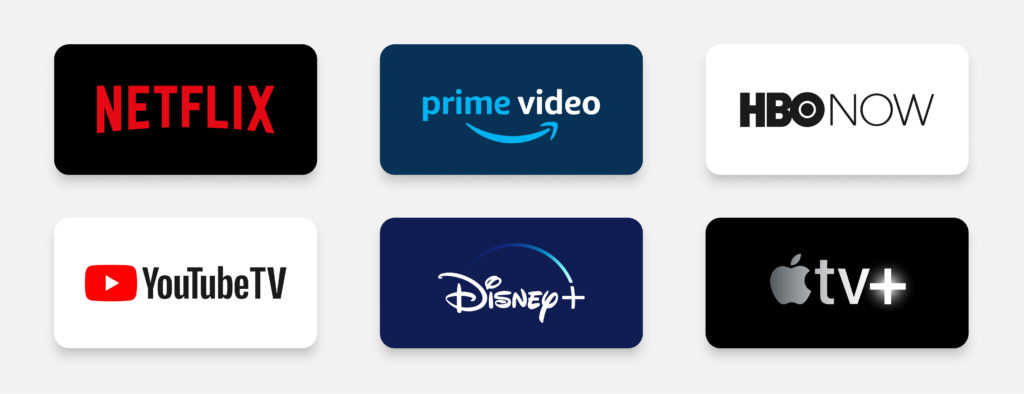
- January 17, 2024 2:32 am
- Florida
Introduction
The birth of streaming marked a pivotal moment in the history of entertainment, revolutionizing how audiences consume content. In the early days of streaming, the landscape was a far cry from the plethora of choices we enjoy today. This article delves into the origins and early developments that laid the foundation for the streaming revolution.
The Precursors: Pioneering the Digital Frontier
Before the advent of dedicated streaming services, various precursors laid the groundwork for what was to come. In the late 1990s and early 2000s, internet radio and on-demand music services pioneered the concept of streaming audio. Platforms like RealAudio and Windows Media Player allowed users to listen to music in real-time, foreshadowing the future of streaming entertainment.
Streaming Video Emerges
Rise of Online Video Platforms
The evolution of streaming took a significant leap with the emergence of online video platforms. YouTube, founded in 2005, became a trailblazer in user-generated content. While not initially focused on professionally produced shows and movies, YouTube’s success demonstrated a growing appetite for online video content such as How To Watch A Party to Die For in UK.
The Influence of Netflix
In 2007, Netflix, a DVD rental-by-mail service, introduced its streaming service. Initially offering a modest selection of movies and TV shows, Netflix’s foray into streaming laid the foundation for a seismic shift in the industry. The convenience of instantly streaming content without the need for physical media heralded a new era for entertainment enthusiasts.
On-Demand Streaming: A Game-Changing Concept
Breaking Free from Linear Programming
The true breakthrough came with the introduction of on-demand streaming services. Platforms like Hulu, founded in 2007, and Amazon Prime Video, launched in 2006 as a part of Amazon’s Prime membership, disrupted the traditional model of linear programming. Viewers were no longer beholden to fixed schedules; they could watch their favorite shows and movies at their own pace.
Netflix’s Transition to Original Content
As on-demand streaming gained momentum, Netflix underwent a transformation. The platform, initially known for licensing existing content, ventured into producing original series. “House of Cards,” released in 2013, marked a turning point. The show’s critical acclaim and success demonstrated that streaming services could be content creators, not just distributors.
The Streaming Wars: A Fierce Battle for Dominance
Expanding Horizons: Entry of New Players
The success of early streaming pioneers paved the way for the entry of new players. Disney launched Disney+ in 2019, Apple introduced Apple TV+ in 2019, and HBO Max joined the fray in 2020. This influx of competition marked the beginning of what is now commonly referred to as the “streaming wars.”
Content Wars and Exclusive Deals
The streaming wars intensified with platforms vying for exclusive content and strategic partnerships. Exclusive rights to beloved franchises, original productions, and high-profile talent became bargaining chips. This period saw a surge in content budgets, as streaming services aimed to not only attract subscribers but also retain their existing user base.
Technological Advancements: Enhancing the Streaming Experience
High-Definition Streaming
Technological advancements played a crucial role in enhancing the streaming experience. High-definition streaming became the norm, offering viewers sharper visuals and improved image quality. The transition to 4K and even 8K streaming further elevated the standard, providing an immersive and cinematic viewing experience from the comfort of home.
Adaptive Streaming Technologies
The implementation of adaptive streaming technologies addressed issues of buffering and lag. Platforms began to dynamically adjust the quality of the stream based on the viewer’s internet connection, ensuring a seamless playback experience. These advancements not only improved user satisfaction but also expanded the reach of streaming to a global audience.
Challenges and Opportunities in the Streaming Landscape
Content Discovery and Recommendation Algorithms
While the streaming landscape offered an abundance of choices, it brought forth challenges related to content discovery. The sheer volume of available content made it difficult for users to navigate. Recommendation algorithms, powered by artificial intelligence, emerged as a solution, providing personalized suggestions based on viewing history and preferences.
Privacy Concerns and Data Security
The convenience of streaming came with its own set of privacy concerns. As platforms collected user data to refine their recommendation algorithms, questions about data security and privacy became more pronounced. The industry faced the challenge of balancing personalized content recommendations with user privacy.
Future Horizons: The Ever-Evolving Landscape
Globalization of Streaming
The globalization of streaming services marked a significant evolution. Unlike traditional distribution methods that staggered releases based on geographic regions, streaming platforms offered simultaneous worldwide access. This global reach not only connected audiences globally but also led to a more diverse representation of cultures and stories.
Emerging Technologies: Virtual Reality and Beyond
Looking ahead, emerging technologies like virtual reality (VR) and augmented reality (AR) promise to further transform the streaming experience. VR could transport viewers into immersive virtual environments, while AR might overlay digital elements onto the real world. These technologies open new possibilities for interactive storytelling and experiential content consumption.
Conclusion
In conclusion, the birth of streaming represents a watershed moment in the history of entertainment consumption. From the early days of on-demand streaming to the current era of intense competition and technological advancements, the landscape has undergone a remarkable transformation. The streaming revolution has empowered viewers, giving them unprecedented control over how, when, and where they consume content. As we continue into the future, the ever-evolving streaming landscape promises continued innovation, shaping the way we experience entertainment in the digital age.
Seller Information
Related Ads
Building a Successful Tinder Clone: Key Features and Best Practices
- 2 months ago
- Indiana
- 21 Views
Dynamic Solutions: Contingent Staffing Services in the USA
- 3 months ago
- Claremont, California
- 36 Views




Leave feedback about this